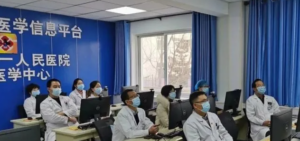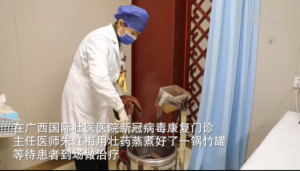
Hunan CDC issued the latest reminder: back to work and back to school during the mobility of people, should pay attention to these!
February spring, the first warm, coinciding with the return to work and school period, the mobility and aggregation of people is greater, Hunan CDC reminded the general public, should focus on prevention and control of new coronavirus infection, influenza and other respiratory infectious diseases and norovirus infection and other intestinal infectious diseases. Also be aware of the risk of public health emergencies and carbon monoxide poisoning in schools.
I. Novel coronavirus infection
New coronavirus infection is mainly transmitted by respiratory droplets and close contact, and can be transmitted by aerosols in closed environments, and contact with objects contaminated with the virus can also cause infection. At present, the peak of the epidemic in China has passed, the global epidemic is also continuing to be prevalent, and the recent emergence of new mutant strains in some countries and regions are more infectious, and the epidemic is on the rise. With the increase in return and work activities, the mobility of people has increased, increasing the chances of virus transmission and spread, and the possibility of infection for those who are not yet infected, the public still needs to pay attention and do a good job in preventing new coronavirus infections.
Health tips
(1) Get vaccinated in a timely manner, and complete the full course of vaccination and booster vaccination as soon as possible for people aged 60 and above, people with serious underlying diseases and people with low immunity who are eligible for vaccination.
(2) Wear a scientific mask, pay attention to hygiene habits, wash hands regularly, pay attention to cough etiquette, gather less, open windows at home and workplace regularly, and do a good job of daily hygiene in the living room.
(3) Protect yourself when you go out. During the Spring Festival, there is a large flow of people and many gathering activities, so do your travel strategy in advance, stagger your travel, and avoid or minimize going to places where people gather.
(4) The elderly, patients with chronic underlying diseases, pregnant women, children and people with disabilities should minimize their visits to crowded public places, and should wear a mask throughout the trip.
(5) Strengthen personal health management. The elderly, patients with chronic underlying diseases, pregnant women, children and other people with fever and respiratory infections should be tested for antigen or nucleic acid in a timely manner.
(6) Whenever possible, infected persons should stay in a well-ventilated and relatively independent room during their stay at home, reduce close contact with fellow residents, and use a separate bathroom if conditions permit. Avoid sharing dishes, towels, bedding and other daily necessities with fellow residents.
(7) Infected persons should not go out unless necessary, avoid going to crowded public places, and do not participate in gathering activities. If you need to go out, you should wear N95 or KN95 mask throughout.
II. Norovirus disease and other infectious diarrhea
Winter and spring is the high season of norovirus and other viral infectious diarrhea, very easy to spread through the fecal-oral route or indirect contact with the environment contaminated by vomit and excrement and aerosols, in addition to this can be spread by food and water, often causing outbreaks in childcare institutions, schools and other collective units.
Health tips
(1) Develop good hygiene habits to prevent illness from entering through the mouth. Wash your hands before and after meals and after touching dirty things, and master the “seven-step washing technique”.
(2) Pay attention to dietary hygiene, do not eat spoiled food, drink boiled water instead of raw water, do not eat cold and unclean food, and separate raw and cooked food.
(3) Clean up the vomit and excrement of patients in a timely manner and disinfect the environment properly.
(4) Once symptoms similar to infectious diarrhea appear, go to the hospital for treatment in a timely manner.
(5) Schools and child care institutions should do a good job of tracking the causes of morning checkups and absences due to illness, and when students are found to have symptoms such as vomiting and diarrhea, ask the sick students to go home for isolation and treatment in a timely manner, and disinfection should be carried out according to the norms; once there is a gathering of morbidity and sudden outbreak, the report should be made to the CDC of the district in a timely manner, and the outbreak investigation and disposal should be carried out under the guidance of relevant professionals.
Third, respiratory infectious diseases
In February, during the Spring Festival and the return of schools at all levels, the public travels in closed transport (buses, trains, airplanes, etc.), attends various gatherings and parties, and students are in frequent contact with each other, which will also increase the risk of transmission of respiratory diseases other than the new coronavirus infection. The risk of the spread of respiratory diseases other than influenza, chicken pox, mumps, scarlet fever, rubella, etc. should be prevented.
Health tips
(1) Pay attention to personal hygiene and use tissues to cover your nose and mouth when sneezing or coughing to avoid droplet transmission. Open windows regularly every day to keep Do not touch sick birds or animals, keep children away from birds and try not to go to the poultry slaughter market.
(2) For infectious diseases that are prevented by vaccines such as influenza, chickenpox, mumps, etc., receive vaccines in a timely manner and throughout the vaccination process according to the relevant vaccination requirements to improve your immunity.
(3) Avoid going to crowded places during the peak of the epidemic, especially patients with mild symptoms should go to community hospitals early and reduce contact with others to avoid cross-infection.
Public health emergencies in schools
February coincides with the start of various types of schools, after school due to the involvement of new sources of infection, the gathering of susceptible people, etc., will increase the risk of transmission of respiratory infectious diseases, intestinal infectious diseases, should be alert to the occurrence of school clusters of cases.
Health tips
(1) Strengthen education activities on the prevention and treatment of common respiratory and intestinal infectious diseases among students, guide students to develop good eating, hygiene and living habits, and raise their awareness of disease prevention. For infectious diseases that are prevented by vaccines, such as influenza, mumps and chickenpox, students should be vaccinated in a timely manner and in accordance with the relevant vaccination requirements.
(2) Schools should strictly implement preventive and control measures such as morning and afternoon check-ups, registration system for absence from school due to illness, return to school after illness, epidemic reporting, disinfection system, etc., maintain ventilation in classrooms and dormitories, pay close attention to students’ health conditions, achieve early detection, early reporting and early treatment, and focus on preventing clusters of respiratory and intestinal infectious diseases and outbreaks of epidemics.
(3) Schools should pay attention to drinking water safety, sanitary inspection of water supply and drinking water facilities before the start of the school year, sampling and testing of water quality, and formal institutions before drinking.
(4) Attention should be paid to food safety, and key places and facilities such as cafeterias and water supply systems should be cleaned and disinfected before the start of the school year so as not to leave any hidden safety hazards.
V. Non-occupational carbon monoxide poisoning
The main places where non-occupational carbon monoxide poisoning occurs are homes, and the main risk factors include the use of coal stoves, charcoal fires, earthen beds, fire walls, etc. for heating in poorly ventilated environments, improper use and installation or substandard quality of gas and gas water heaters, and gas leaks from gas stoves or gas pipes. In addition, restaurants and hotels that use charcoal fires, gas and gas, garages and basements that use small oil and gas generators, and inside air conditioned cars that are airtight are also high-risk places.
The main symptoms of mild poisoning patients are headache, dizziness, tinnitus, blurred eyes, nausea, vomiting, and weakness of limbs; moderate poisoning patients have cherry-red skin and mucous membranes, flushed face, excessive sweating, accelerated pulse, confusion, unsteady walking, blurred consciousness, sleepiness, decreased judgment, hallucinations, shallow coma, and blunted light and corneal reflexes on top of the symptoms of mild poisoning. Patients with severe intoxication appear deep coma or de-corticalized state, various reflexes are obviously weakened or disappeared, incontinence, cold extremities, pale lips and face or cyanosis, sweating, elevated body temperature, decreased blood pressure, and respiratory depression. After mild and moderate poisoning, there is no sequelae if the patient is quickly removed from the poisoned environment and rescued in time; severe poisoning patients have a high death rate and those who survive may have serious sequelae.
Health tips
(1) Burn out the coal in family life, do not smother the cover, install better ventilation pipes for coal stoves, and seal the pipes tightly with the walls to prevent carbon monoxide from backing up into the room, and open windows frequently to keep the air fresh.
(2) Buy forced-air gas water heaters and do not install them in the bathroom; avoid bathing for too long, and keep a small window ventilation in the shower.
(3) Do not close the car doors and windows for a long time when parking.
(4) If a suspicious patient is found, move the patient quickly away from the poisoning scene to a ventilated place, loosen the collar, pay attention to keeping warm, closely observe the state of consciousness, call an ambulance at the same time, and take the patient to a hospital in time for resuscitation.


Average Rating